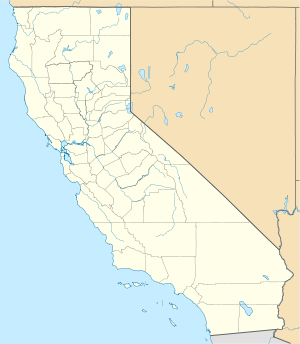Ralph J. Scott (fireboat)
 |
|
| History | |
|---|---|
| Name: |
|
| Builder: | Los Angeles Shipbuilding & Drydock Company |
| Sponsored by: | Mrs. Ralph J. Scott |
| Christened: | 25 October 1925 |
| Commissioned: | 2 December 1925 |
| Out of service: | 2003 |
| General characteristics as built | |
| Type: | Fireboat |
| Tonnage: | 152 GT |
| Length: | 99.3 ft (30.3 m) |
| Beam: | 19 ft (5.8 m) |
| Depth: | 9 ft (2.7 m) |
| Installed power: |
|
| Propulsion: | triple screw |
| Speed: | 17 knots (31 km/h; 20 mph) |
| General characteristics 1945–c.1975 | |
| Installed power: |
|
| General characteristics c.1975– | |
| Installed power: |
|
|
Ralph J. Scott
|
|
| Location | Berth 85, San Pedro, California |
| Coordinates | 33°43′56″N 118°16′30″W / 33.73222°N 118.27500°WCoordinates: 33°43′56″N 118°16′30″W / 33.73222°N 118.27500°W |
| Area | 0.1 acres (0.040 ha) |
| Built | 1925 |
| Built by | L.A. Shipbuilding & Drydock Corp. |
| NRHP Reference # | 89001430 |
| LAHCM # | 154 |
| Significant dates | |
| Added to NRHP | 30 June 1989 |
| Designated NHL | 30 June 1989 |
| Designated LAHCM | May 5, 1976 |
Ralph J. Scott, also formerly known as Fireboat #2, is a 100-foot (30 m) fireboat that was attached to the Los Angeles Fire Department serving the Port of Los Angeles. She was retired in 2003 after 78 years and replaced by Warner L. Lawrence. Ralph J. Scott is on display near the Los Angeles Maritime Museum in San Pedro. On 30 June 1989, she was listed as a National Historic Landmark. As of 2012, the National Historic Landmark is currently in need of volunteers to complete the restoration process. She is currently located at the Los Angeles Fire Department, Fire Station 112, at 444 South Harbor Blvd, Berth 86, San Pedro, California, 90731
She is 100 feet (30 m) long and can pump 17,000 US gallons per minute (1.1 m3/s). Her namesake is a former Chief Engineer of the LAFD.
On 6 May 1924 voters approved a $400,000 bond issue for construction of a fireboat, a station to house it and auxiliary apparatus.
Following completion of L. E. Caverly's designs dated 31 January 1925, a $214,000 contract was awarded to the Los Angeles Shipbuilding and Drydock Corp. (Todd Shipyard) in San Pedro. The contract called for a 1 October 1925 delivery date. At 10:25 a.m., 25 October 1925, Mrs. Ralph J. Scott christened Los Angeles City No. 2 by breaking a bottle of fire-extinguishing foam across the bow.
Commissioned 2 December 1925 Los Angeles City No. 2 went into service 25 days later with a crew of 14, including a captain, a pilot, a mate, two engineers and nine firemen.
The triple screw, white-painted fireboat was riveted steel construction. Her length is 99.3 feet, beam 19 feet, depth of hold 9 feet, 152 gross tons and fuel capacity 2,156 gallons.
Originally Los Angeles City No. 2 was powered by seven 350-horsepower, 6-cylinder in-line Winton gasoline engines. Three of these Wintons drove the center, port and starboard propellers for a top rated speed of 17 knots (31 km/h; 20 mph) (the fastest fireboat afloat). The four other Wintons operated the forward-mounted pumps. Increased pumping capacity resulted from the dual capability of the two wing propulsion engines when they were switched from propulsion to pumping mode. There are six Byron Jackson four-stage centrifugal pumps mounted in pairs forward of the propulsion system. Each is rated at 1,700 US gallons per minute (0.11 m3/s) at 200 pounds per square inch (1,400 kPa), for a total output of 10,200 US gallons per minute (0.64 m3/s).
...
Wikipedia

